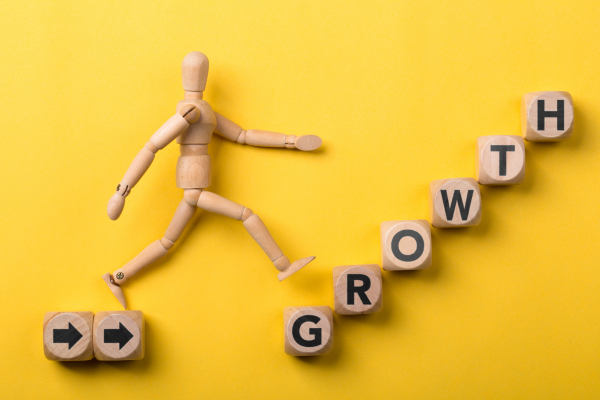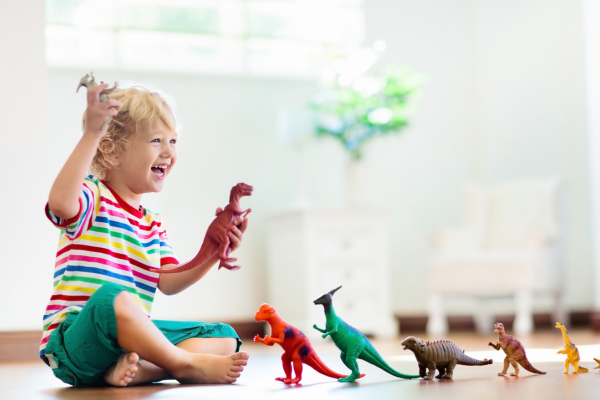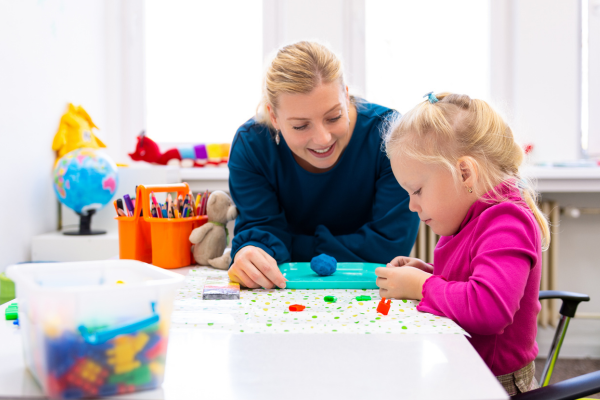
As a child educator, I’ve witnessed countless moments of frustration and triumph in the lives of children with ADHD (Attention Deficit Hyperactivity Disorder). The sparkle of curiosity in their eyes, the determination to master a new skill, and the heartbreaking moments of self-doubt – these are all part of the unique journey of a child with ADHD.
But here’s the secret: a diagnosis of ADHD doesn’t define a child’s potential. It’s a hurdle, yes, but with the right support system and a powerful tool called a growth mindset, children with ADHD can thrive.
Fixed vs. Growth Mindset: Understanding the Difference

Our mindsets, whether fixed or growth, significantly impact how we approach challenges and navigate life’s experiences. A fixed mindset views intelligence and abilities as static and unchangeable. When faced with difficulty, a child with a fixed mindset might think, “I can’t do this. I’m not good at math.” This can lead to feelings of helplessness and discouragement.
On the other hand, a growth mindset embraces the idea that intelligence and abilities can be developed through effort and learning. A child with a growth mindset might say, “This math problem is tricky, but I haven’t figured it out yet. I can ask for help and keep trying.” This fosters resilience, a sense of self-efficacy, and a love of learning.
The Power of “Yet”: A Simple Phrase with Big Impact

The word “yet” might seem insignificant, but when incorporated into your interactions with a child with ADHD, it can be a game-changer. Instead of focusing on limitations (“You can’t finish your homework”), we can reframe challenges with a growth mindset (“You haven’t finished your homework yet, but let’s find a strategy to help you focus”).
Here’s how the power of “yet” can benefit your child:
- Empowers Self-Efficacy: A growth mindset with the power of “yet” allows children to believe in their ability to learn and improve. This fosters a sense of self-efficacy, motivating them to persist even when faced with setbacks.
- Builds Resilience: Challenges and frustration are inevitable, especially for children with ADHD. A growth mindset teaches them to view setbacks as opportunities for growth, building emotional intelligence and resilience.
- Ignites a Love of Learning: When children believe effort leads to progress, they’re more likely to embrace learning and try new things. This intrinsic motivation is crucial for developing strong academic skills and fostering a lifelong love of learning.
Putting the Power of “Yet” into Practice

So, how can you incorporate a growth mindset and the power of “yet” into your daily interactions with your child? Here are some practical tips:
- Focus on Effort, Not Outcome: Instead of simply praising the “A” on the test, highlight the hard work and focused study that led to that achievement. Say things like, “I saw how hard you focused on studying for your math test. That’s what helped you learn the material so well!”
- Celebrate “Yet” Moments: Did your child struggle with their homework but persevere through the frustration? Acknowledge their effort and say, “You haven’t finished your homework yet, but I saw how hard you were focusing. Let’s see if we can find a strategy to help you get through it.”
- Embrace Mistakes as Learning Opportunities: Turn mistakes into teachable moments. Instead of getting discouraged, use phrases like “We can learn from this and try again next time!” For example, if your child struggles with their multiplication tables, you could use flashcards and practice games to make learning fun and engaging.
- Model a Growth Mindset: Talk about your own challenges and how you overcome them. Let your child see that everyone faces setbacks, but it’s how we learn and adapt that defines us. Share stories about times when you didn’t give up on a goal, even when it felt difficult.
Beyond Mindset: Creating a Supportive Environment

While a growth mindset and the power of “yet” are powerful tools, it’s important to remember that they’re not the only pieces of the puzzle. Children with ADHD often face additional challenges beyond academics, such as difficulties with sensory processing, social-emotional development, and executive functioning skills
At ONE Intervention Centre, we understand these unique challenges. Our team of experienced therapists utilizes evidence-based strategies to address not just academic skills, but also the specific needs of each child. Our programs, like the Early Intervention Program for Infants and Children (EIPIC) and the School Readiness Program, are designed to empower children with ADHD to reach their full potential.
Addressing the Spectrum of Needs

Children with ADHD can experience a variety of challenges beyond academics. Sensory processing difficulties can make it hard to focus in stimulating environments, while social-emotional development may be impacted by self-regulation issues. Here’s how we address these needs:
- Sensory Processing: Our therapists use techniques like sensory integration therapy to help children regulate their sensory experiences and improve focus.
- Social-Emotional Development: We incorporate social skills training and emotional regulation strategies to help children develop healthy relationships and manage their emotions effectively.
- Executive Functioning Skills: Executive functioning skills like planning, organization, and time management are often underdeveloped in children with ADHD. We utilize evidence-based interventions to strengthen these crucial skills.
A Supportive and Collaborative Approach

We believe in working collaboratively with parents, educators, and other caregivers to create a cohesive support system for each child. This collaborative approach ensures consistency and reinforces the strategies learned at our centre in the child’s daily life.
Empowering Parents and Building Confidence:
At ONE Intervention Centre, we understand that parents are a child’s first and most important teachers. We provide parents with the tools and resources they need to support their child’s growth and development at home. This may include individual consultations, daily updates and access to online resources.
Every child with ADHD is unique, and their journey will unfold in its own way. By fostering a growth mindset, providing a supportive environment, and addressing each child’s specific needs, we can empower them to thrive.
We believe in the potential of every child.
Ready to learn more about how ONE Intervention Centre can help your child with ADHD? Visit our website, https://www.oneintervention.org/, to explore our programs and schedule a consultation with us.
